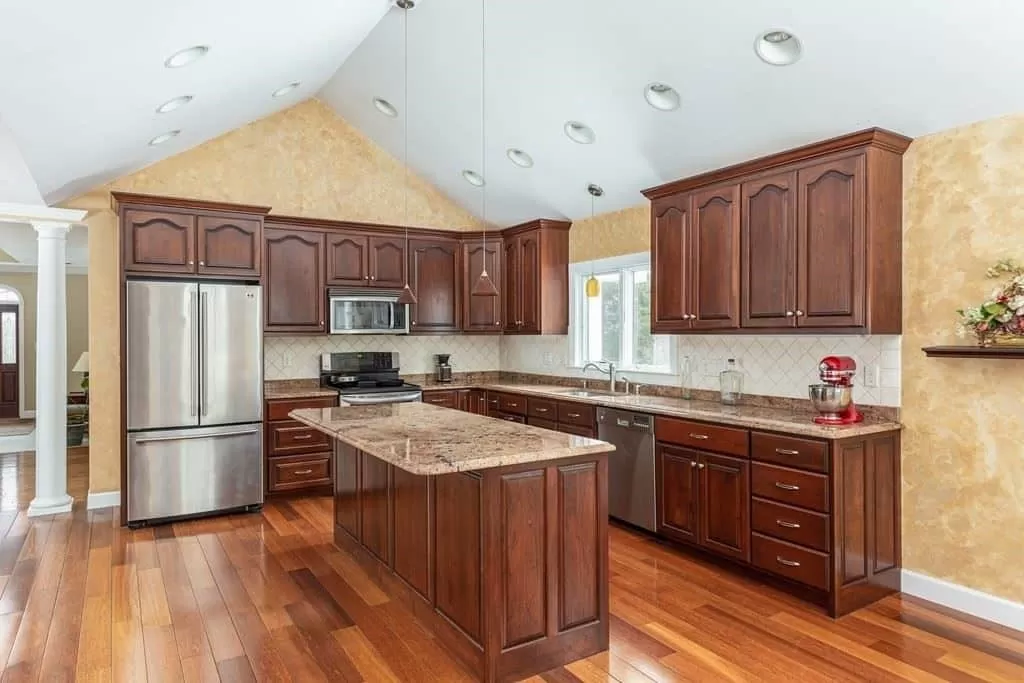Granite is perpetually popular when it comes to countertops, but quartz also has a lot to bring to the table in terms of beauty and durability. The main difference is that granite is a natural stone while quartz is an engineered stone. Similar in appearance and performance, their composition is quite different.
Which one suits you best?
Solid Stone vs. Engineered Stone
Granite counters come from pure stone, which is cut into slabs or tiles, followed by a polish before installation. Quartz countertops come from crushed quartz mixed with some pigment for color as well as resin to bind it. The quartz content is between 92 and 94 percent. If you only want authentic counters, granite is the one to go with.
Appearance
Granite shows natural and slight variations with colors ranging from earth tones and blues to roses and greens. When it comes to coloration, quartz is more consistent and comes in a wider range of color because they have pigments added. In terms of appearance, both are beautiful. It really comes down to personal preference.
Durability
While natural granite is gorgeous, it has some drawbacks, such as the fact that it must be sealed regularly. You don’t need to do that with quartz. Granite, as well as all natural stone countertops, stains easily. Granite that’s been sealed will be stronger than non-sealed granite but never quite as resistant as quartz.
Granite also cracks and chips more easily than engineered stone. Both last between 25 and 50 years with good care.
Cost
You will spend between $80 and $140 per square foot installed for quartz, and with granite you will spend between $80 and $175 or higher for higher-end materials.
Eco-Friendly
Granite produces fewer carbon emissions when it’s being produced than quartz, although neither option emits a lot of radon or volatile organic compounds (VOCs). Granite is slightly more eco-friendly than quartz.
A Breakdown: Granite
Many homeowners believe that nothing beats the real thing, which is why they go with granite. They’re also more inclined to purchase real hardwood for their floors. They like authenticity and natural materials.
Some people think because quartz is heavily processed that it detracts from the natural look and feel. Natural stone, on the other hand, has striations and subtle color changes that bring a uniqueness to the stone.
A Breakdown: Quartz
As we said, quartz is an engineered product and as such is non-porous. This means it’s easier to keep bacteria away, unlike natural stone which has pores and capillaries inside the minerals that can attract stains and germs.
It’s easier to maintain quartz countertops, so it’s often a top choice by parents with small children, or the elderly who are more vulnerable to viruses and bacteria.
In the end, the choice is highly personal. You really can’t go wrong with either one!
Contact Granite Guy
Our team would be happy to help you decide. Just contact us at 508-460-7900 for a free quote from our quartz and granite installers in Medford.

